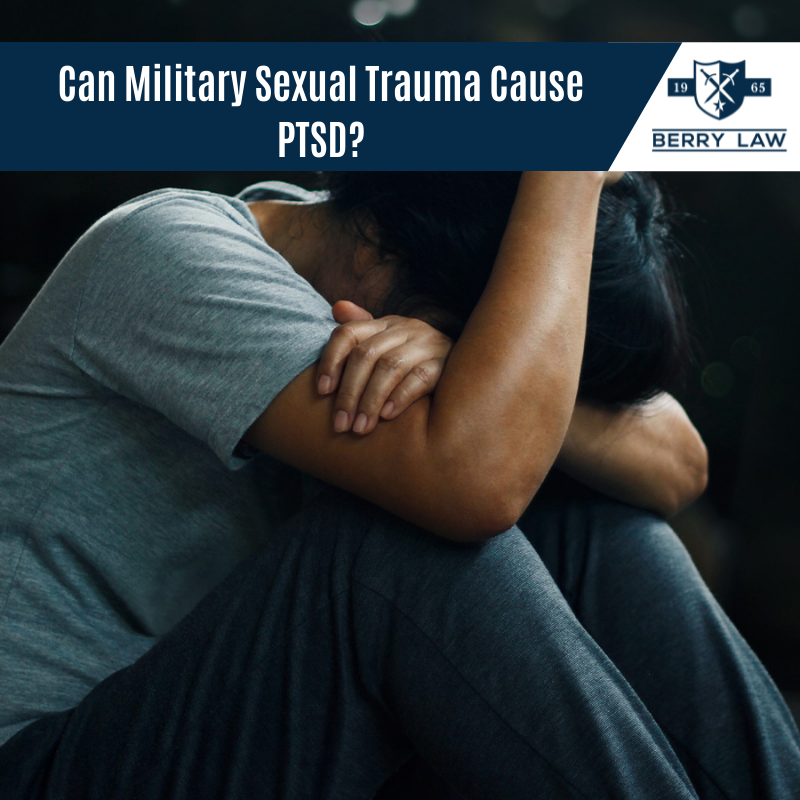
Military service can expose individuals to various forms of trauma, including military sexual trauma (MST). One critical question often arises: Can MST cause Post-Traumatic Stress Disorder (PTSD)? The short answer is yes. MST, a severe and unfortunately common issue in the military, can lead to PTSD, profoundly impacting the lives of Veterans long after their service has ended.
Understanding the connection between MST and PTSD is important for Veterans seeking support and benefits. The U.S. Department of Veterans Affairs (VA) handles MST-related claims, and Veterans are entitled to disability benefits for the physical and mental health challenges that result from MST.
However, the claims process can be complicated. Veterans need to have skilled legal assistance in navigating the claims process, working with an experienced military sexual trauma attorney.
Military Sexual Trauma refers to experiences of sexual harassment or assault that occur during military service. According to the VA, MST encompasses a range of behaviors from repeated verbal sexual harassment to physical assault. Both men and women can suffer MST, facing significant mental health challenges as a result.
The effects of MST can be debilitating and long-lasting, leading to conditions such as PTSD, depression, anxiety, and substance abuse disorders. The emotional and psychological impact can severely disrupt daily functioning and quality of life.
PTSD is one of the most common conditions associated with MST. Veterans must provide evidence that their PTSD is linked to their MST experiences to receive a disability rating for PTSD. The VA assigns ratings for PTSD based on the severity of symptoms and the impact on daily functioning, with ratings ranging from 0% to 100%.
Studies have shown that MST can significantly increase the risk of PTSD among Veterans. According to a report by the National Center for PTSD, about 1 in 3 women and 1 in 50 men report experiencing military sexual trauma when screened by their VA provider.
While the rates of MST are higher among women, the larger number of men in the military means that significant numbers of both women and men seen by the VA have experienced MST. In fact, more than 1 in every 3 Veterans who disclose MST to a provider are men.
Recognizing MST as a cause of PTSD is a vital step in ensuring Veterans receive the care and compensation they deserve. The VA acknowledges this link and provides avenues for affected Veterans to seek benefits and support.
In addition to PTSD, several physical and mental health conditions can be linked to MST, qualifying for VA disability benefits. These conditions often fall under the categories of mental health disorders and physical health issues, each with specific criteria and ratings. They may include:
Many factors contribute to the underreporting of MST incidents. Service members may fear retaliation, ostracization, or damage to their careers if they come forward. The military environment can sometimes discourage reporting.
Additionally, feelings of shame, guilt, and self-blame can prevent individuals from reporting these traumatic experiences. According to the Department of Veterans Affairs, only a fraction of MST incidents are officially reported at the time they occur.
The VA does not have a specific rating system for MST itself, but it does recognize and rate conditions that arise from MST, such as PTSD, depression, and other mental health and physical issues.
Because MST is not always reported, there can be significant challenges in connecting Veterans’ MST experiences and subsequent health conditions. As a result, the VA has relaxed its evidentiary standards for these claims.
When Veterans submit claims for MST-related PTSD, the VA looks for markers or stressors that strongly indicate the impact of military sexual trauma, even if the incidents were not officially reported at the time. The VA regulations list various examples that can be used to corroborate MST as a prerequisite stressor for PTSD claim-related benefits. These examples include:
VA regulations prohibit the VA from denying any PTSD claim based on MST without initially advising the Veteran that evidence from sources other than their service records—or evidence of the behavior change—may allow the VA to corroborate the stressor.
Utilizing markers effectively requires careful documentation and presentation of evidence. Veterans seeking to prove MST-related claims should work with knowledgeable professionals who can help gather and present this evidence effectively. Legal advocates, counselors, and Veterans service organizations can assist in identifying and compiling markers to support a claim.
By allowing for a broader range of evidence and considering markers, the VA aims to ensure that survivors of MST receive the care and benefits they need to heal and thrive.
Veterans benefit from the support of experienced attorneys who can help gather necessary evidence, present it effectively, and advocate on their behalf. Legal professionals understand the intricacies of the VA system and can significantly improve the chances of a successful claim.
Military Sexual Trauma is a serious issue with profound implications for Veterans’ mental and physical health. It can lead to PTSD, a condition recognized and compensated by the VA. Understanding the connection between MST and PTSD, and navigating the complex claims process, can be challenging. However, with the right support and legal assistance, Veterans can successfully secure the benefits and care they deserve.
Veterans experiencing MST should not hesitate to seek help. Reporting the trauma and pursuing a claim can lead to crucial support and a path toward healing. For more information or assistance with VA claims, Veterans are encouraged to contact legal professionals at Berry Law who are experienced in handling MST-related cases. Many of the attorneys at Berry Law are Veterans themselves. They understand the VA claims process and how to effectively represent MTS survivors. Call 888-883-2483 or fill out our online contact form for a free confidential consultation. Berry Law represents Veterans in all 50 states and is available 24/7.
Our monthly newsletter features about important and up-to-date veterans' law news, keeping you informed about the changes that matter.